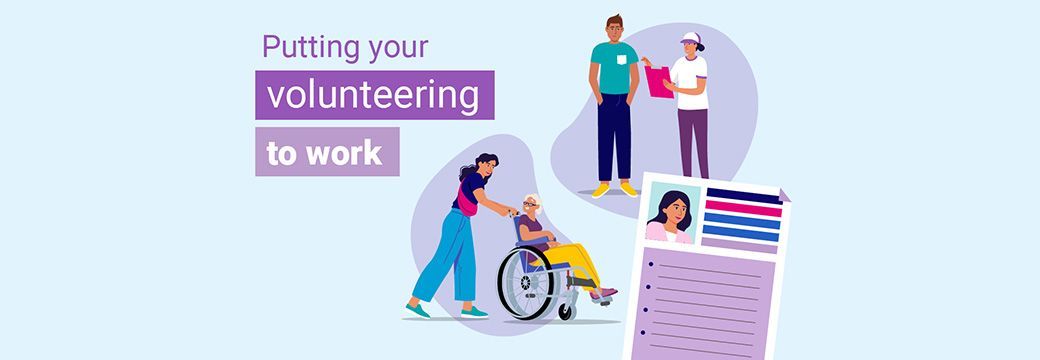How volunteering experience can help you land a job

Resume? Done. Application? Complete. Your SEEK Profile is updated and you’ve double-checked the job description … but there’s one last question. Where does your volunteer experience fit into all of this? How can you leverage your volunteering experience to show your skills in a way hirers will understand and help you land the role you want?
In celebration of National Volunteer Week (19-25 June 2022), SEEK Volunteer has released a new research report, ‘Putting volunteering to work’. The research discovered valuable insights that can help convert a candidate’s volunteer experience into real skills, experience and values for a role in a workplace. For job candidates, the key bridge to cross is taking hiring managers from your resume display of volunteer experience, to demonstrating the value and skills you can use in the role you're going for.
“Share the stories,” one hiring manager who took part in the research said. “We often ask people to tell a story when they have gone above and beyond to provide client service… candidates could tell a volunteer story that made a difference”.
Volunteer experience is valued experience
One of the key elements of any job interview or application is the ‘Experience’ section. Traditionally, the less work experience that a candidate has, the less hirers know about their qualities, and more resources may need to be expended (training them up, the potential for making mistakes).
However, the research showed that there is a positive hiring attitude toward volunteering, with 75% of hiring staff agreeing volunteer experience is an advantage in a job interview. This means that hiring managers don’t just consider paid experience to be the only valid route into a job. Your volunteer experience also counts. Volunteering can help develop transferable skills, which hiring managers rank as the highest selection criteria for career change and entry level workers.
Hiring managers are looking to add value to their workplace, and the research found that they prioritise three main selection criteria: cultural fit, professional capabilities and soft skills. As these managers are often time-poor and resume-swamped, it’s great if they are able to quickly and easily understand how you have achieved these attributes, through volunteering. Hiring managers also value what volunteering shows: a caring nature and a willingness to help, as well as a focus on good culture, determination, and commitment.
Key points:
- Volunteering is a great way to start to build transferable skills, while gaining soft skills.
- Hiring managers look for candidates with a combination of cultural fit, professional capabilities and soft skills.
- Frame your volunteer experience in an easy to understand way.
How to speak about your volunteer experience
Thanks to the research, we already know that hiring managers want to see volunteer experience on applications, and that they recognise its value. But the biggest disconnect that hiring managers come across with volunteering, is understanding how to assess your volunteer experience.
To make the most of your volunteer experience, it’s important to convey your learnings in a way that clearly shows their value, while also directly addressing the job description and application criteria.
“I really want to hear about their volunteering experience that is relevant to the job they are applying for. This can be working in a team. If I can’t see how it will help them in the job, it isn’t as impactful.” – hiring manager.
Here are some tips about framing your volunteer experience in a way that hiring managers can easily understand and assess.
You can speak about:
- What was gained through volunteering and how these skills apply to the job.
- Why you decided to volunteer, to help hirers understand more about you as a person.
- How long you volunteered for, which can demonstrate your commitment.
You can always speak to your volunteer experience during an interview, and on your resume, your volunteer experience should be clear and succinct. You can reference it in your cover letter, but keep it after paid work. Keep your description short, informative and relevant.
Key points:
- Framing your volunteer experience in the relevant context of the role you’re applying for is an important part of your job application.
- You need to communicate the value of your volunteering, so that the hiring manager can recognise how you can fit into their workplace.
Successfully articulating your volunteer experience is a great way to put your best foot forward. The ‘Putting volunteering to work’ report showed that hiring managers value your volunteering experience, and that it can be an advantage during a job interview, with 82% of hiring managers agreeing that volunteering can be a credible way to get real-work experience.
Make sure you communicate your volunteer experience in a way that hiring managers can understand and assess so that everyone is able to clearly see its value.
Start your search for relevant volunteer opportunities here.